- by Don
Roadschooling: A Brief Look Into Education on the Road for RV Families
If you have children, you may already realize that one benefit the RV Lifestyle offers is the ability to incorporate education into your travels. Many full time RVers use their travels to assist in their childrens’ education. They leverage RVing and homeschooling (or, as some people call it, road schooling) to apply a more hands-on approach to education.
But what about non-full-time RVers? Well, it turns out you can still leverage the RV Lifestyle to assist with your child's learning, and to make school more fun. We had the opportunity to do just that recently.
The Opportunity to Roadschool
It’s one thing to read about a topic and another to actually experience it. We decided to leverage our RV lifestyle and enhance our son’s education. He had a school project to create a poster about wetlands. He was required to pick one of the eleven types of wetlands in North Carolina, research it, and create a poster about it.
As he reviewed the types of wetlands and where they are located, we realized that many were within driving distance. He picked Carolina Bays, and we visited Jones Lake State Park so we could see them first hand. It was the perfect opportunity to live the RV lifestyle temporarily.
What We Learned About Jones Lake State Park
Jones Lake State Park turned out to be an excellent choice for our "road schooling" adventure. The park includes two Carolina Bays with Lakes: Jones Lake and Salter Lake. A four mile trail wraps around both lakes, and a 1.5 mile loop trail winds along part of the shore line of Jones Lake.
The park also has a nice visitor's center with an exhibit room full of details about the lakes, the Carolina Bays, and Wetlands. Outside the visitor center is a large picnic area, complete with grills, and a pier that extends into Jones Lake. The pier offered nice views of the Cypress Trees and a close up of the red water and sandy rim.
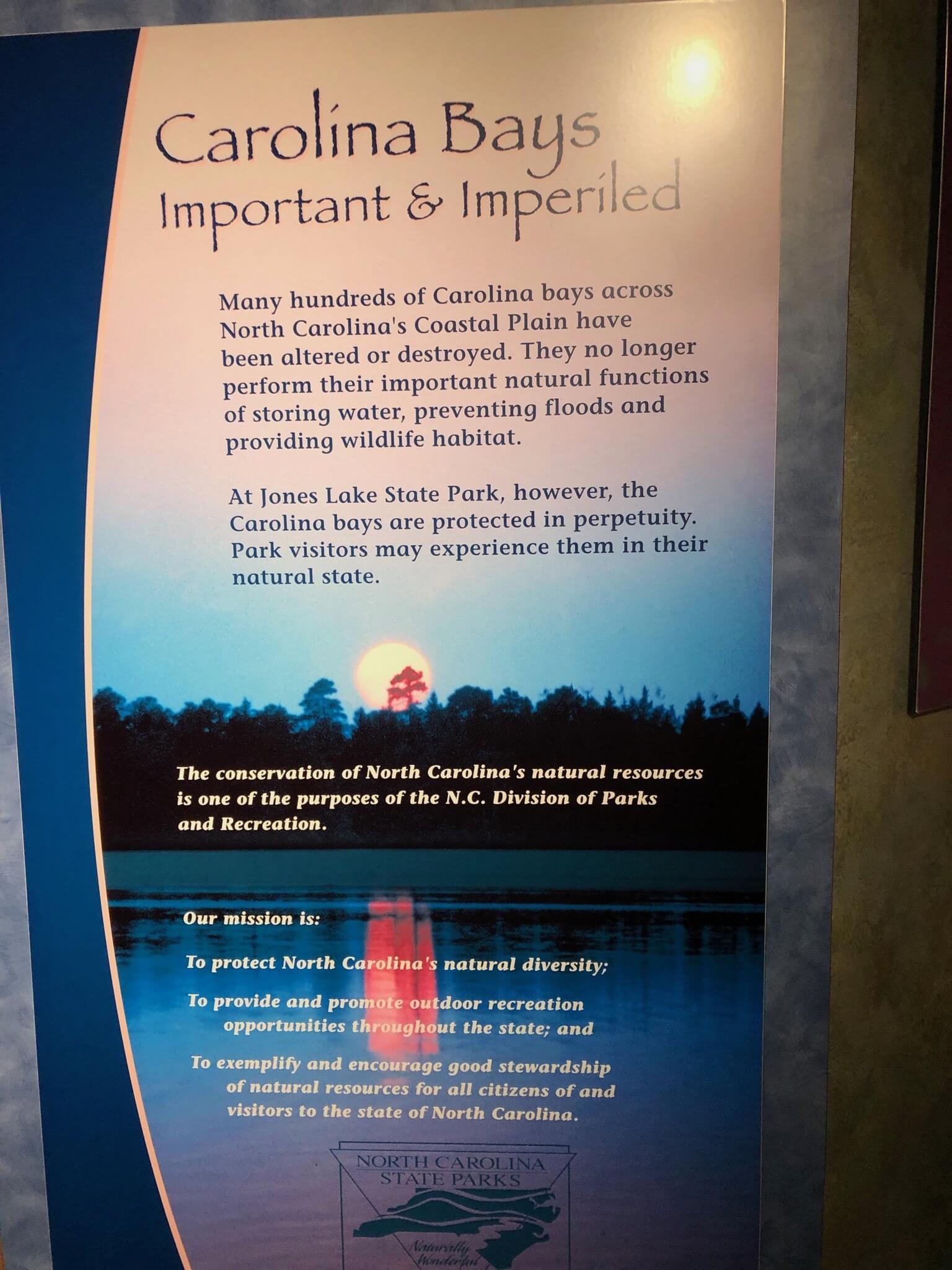
Exhibit in the Jones Lake State Park Visitor's Center
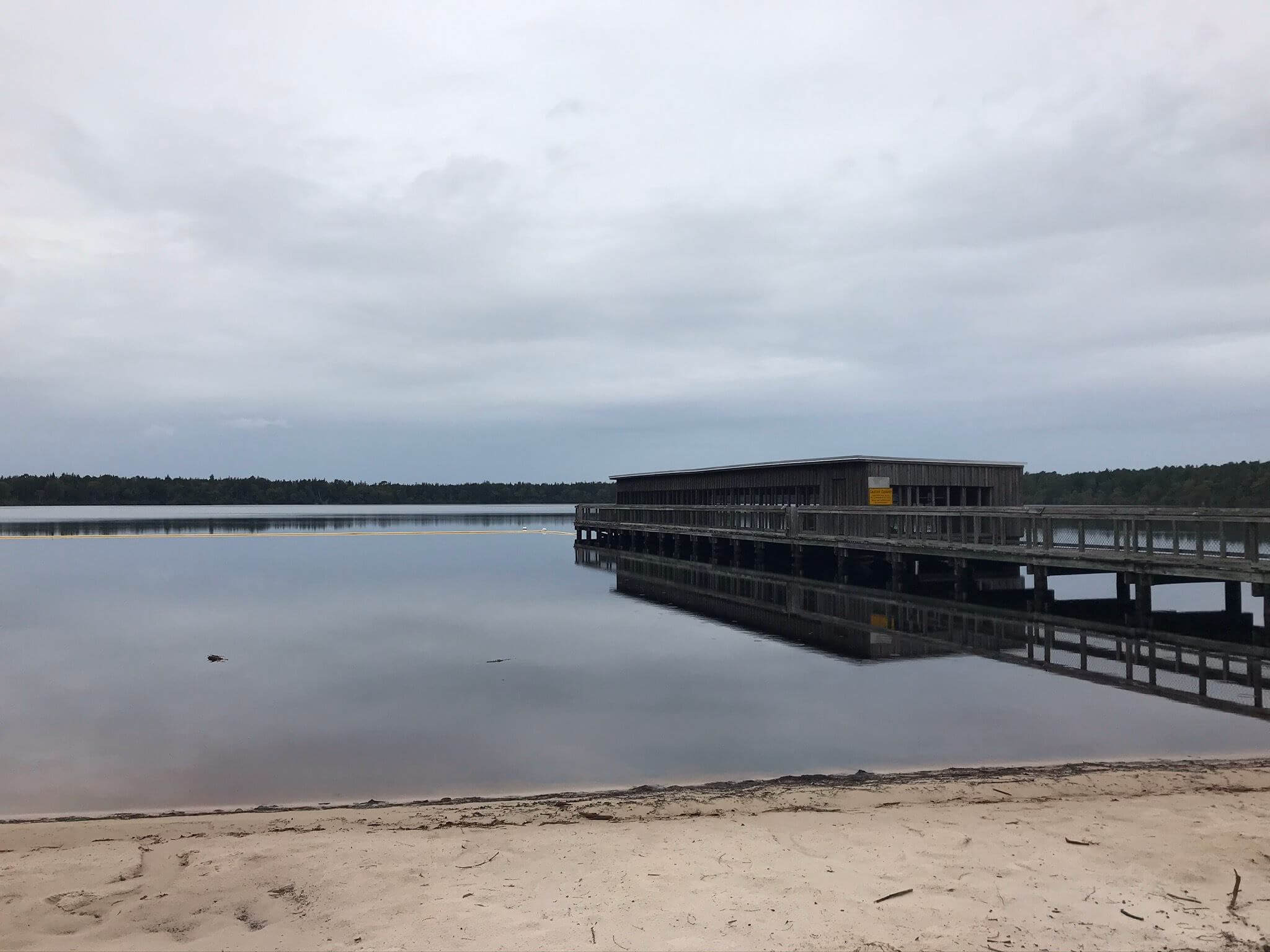
View of the waters
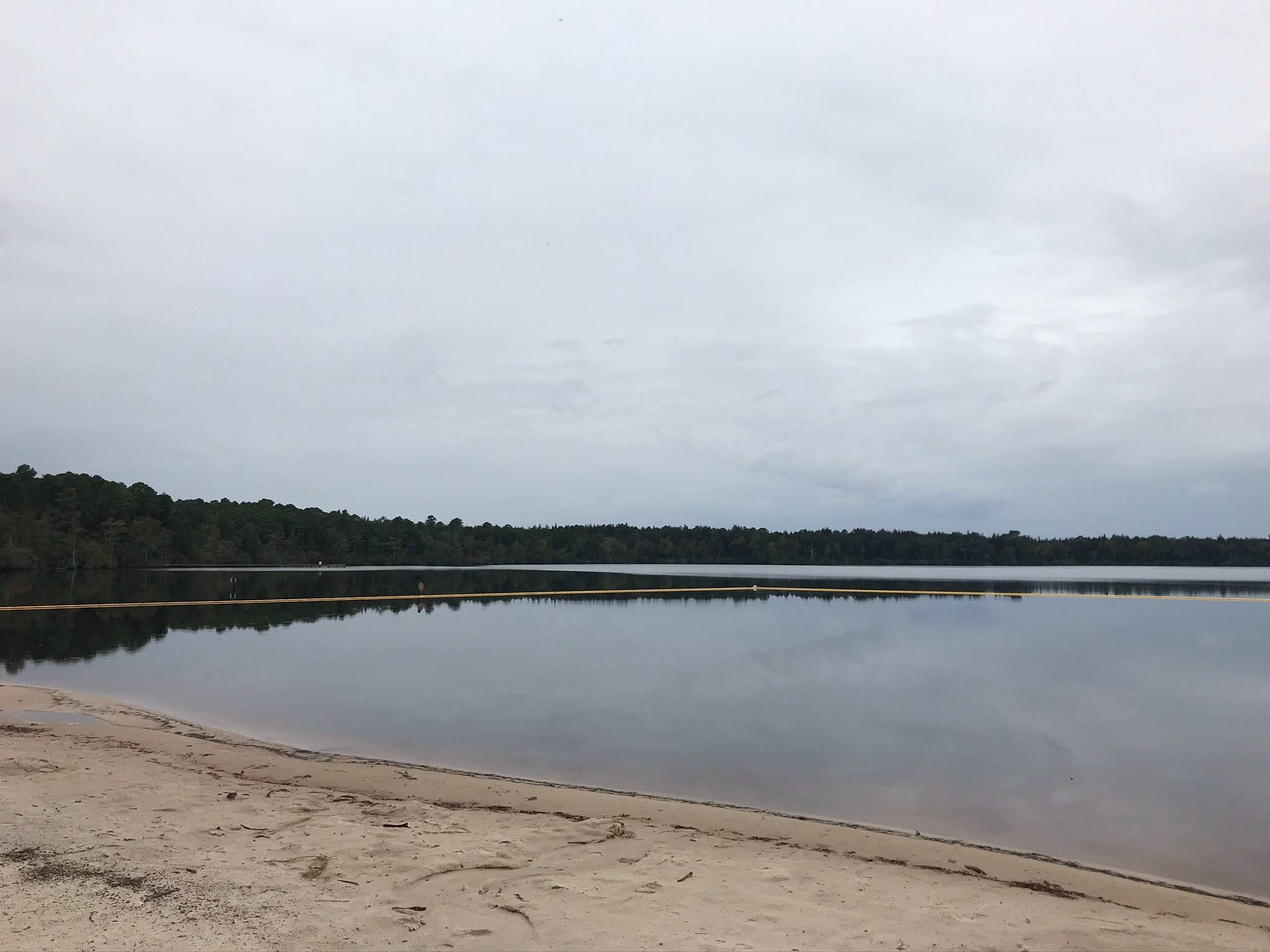
View of the waters
The trail provided nice views of the lake, including some good views of the cypress trees. As we were finishing up, we got to see some of the more common wildlife of Carolina Bays: frogs!
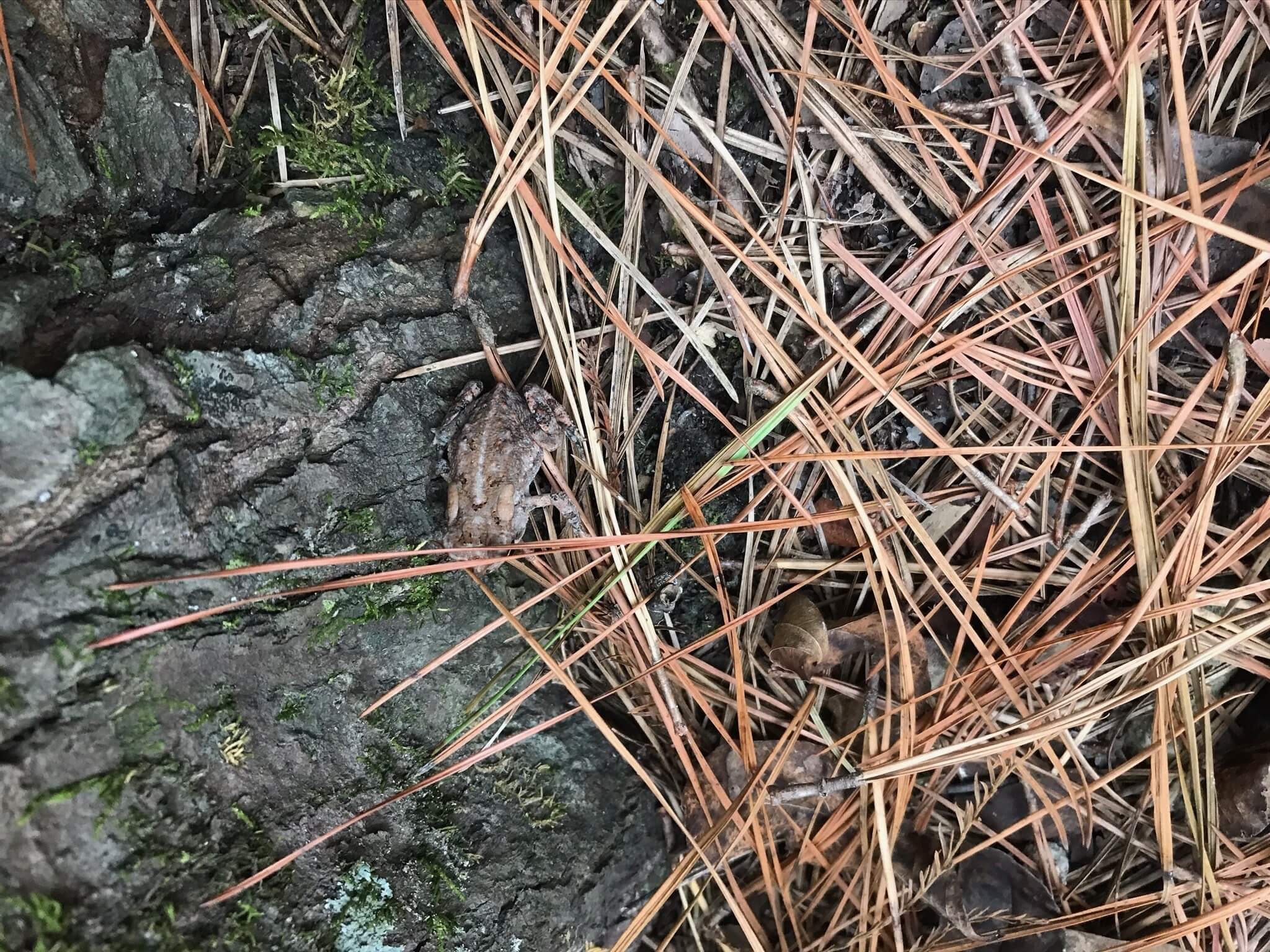
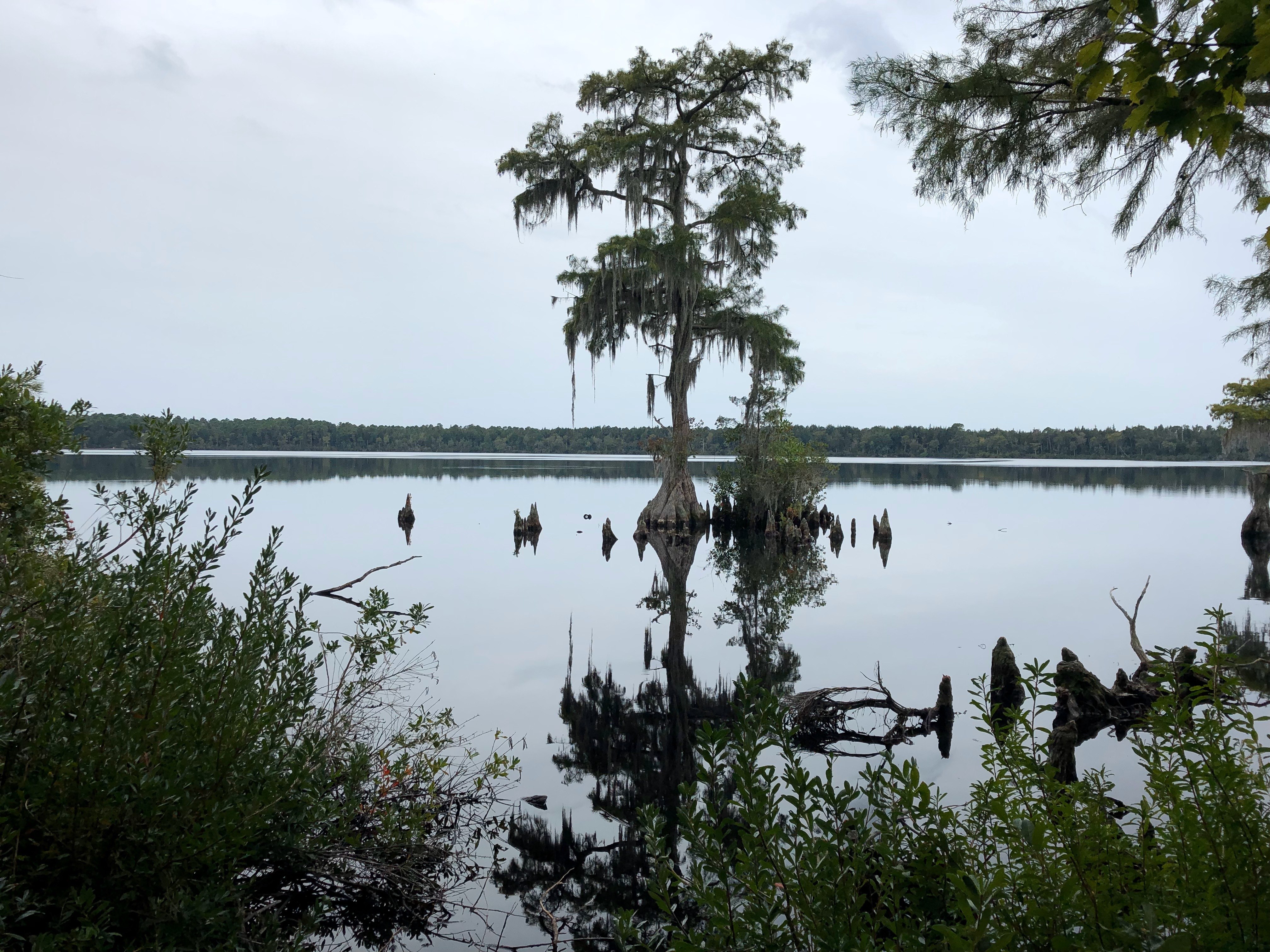
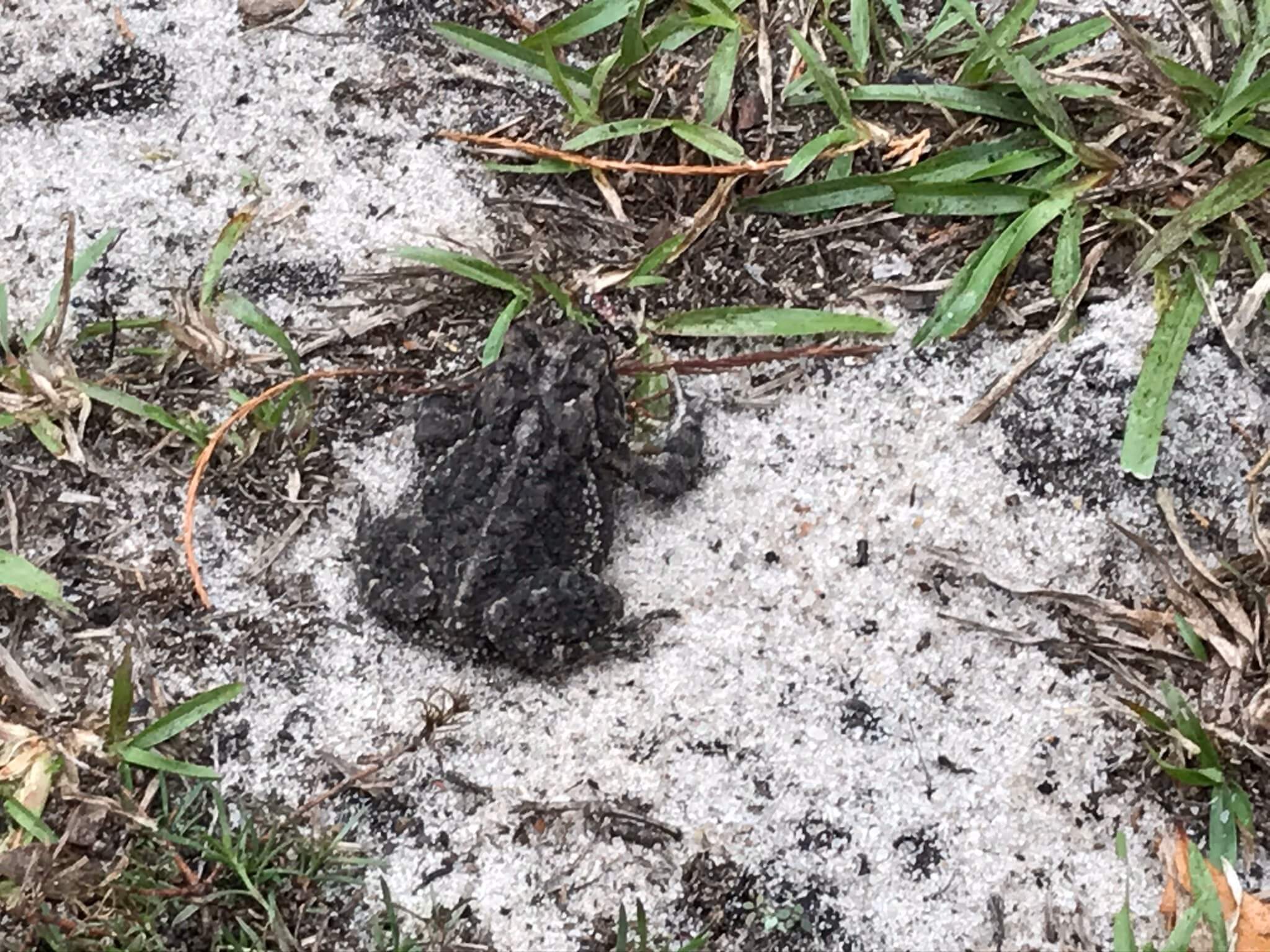
The staff was very friendly and provided us with brochures, activity books, and other information to assist in our son's project.
After speaking with the friendly staff, touring the exhibits, and checking out the beach and pier, we walked the 1.5 mile loop trail. I really wanted to walk the 4 mile trail, but we had to dodge downpours from the weather that weekend, and we knew that realistically we'd get soaked if we attempted the longer trail.
Where we stayed: Jones Lake Campground
After hiking the loop trail, we headed to the campground.
The Jones Lake campground was closed for part of 2019 due to construction. As part of the renovation, the campground now offers 6 sites with full hookups. The sites are large (perhaps I should say "Huge!") and features picnic tables, lantern hangers, and a nice concrete and brick pad with a fire pit.
It poured for most of our visit, but it looked to me like the trees would offer a decent amount of shade, while still providing satellite reception for those who are so inclined. We don't have satellite TV in our RV, but for fun we checked out the local TV reception. Using only the built-in antenna and amplifier in our RV, we were able to pull in stations ranging from Raleigh to the coast.
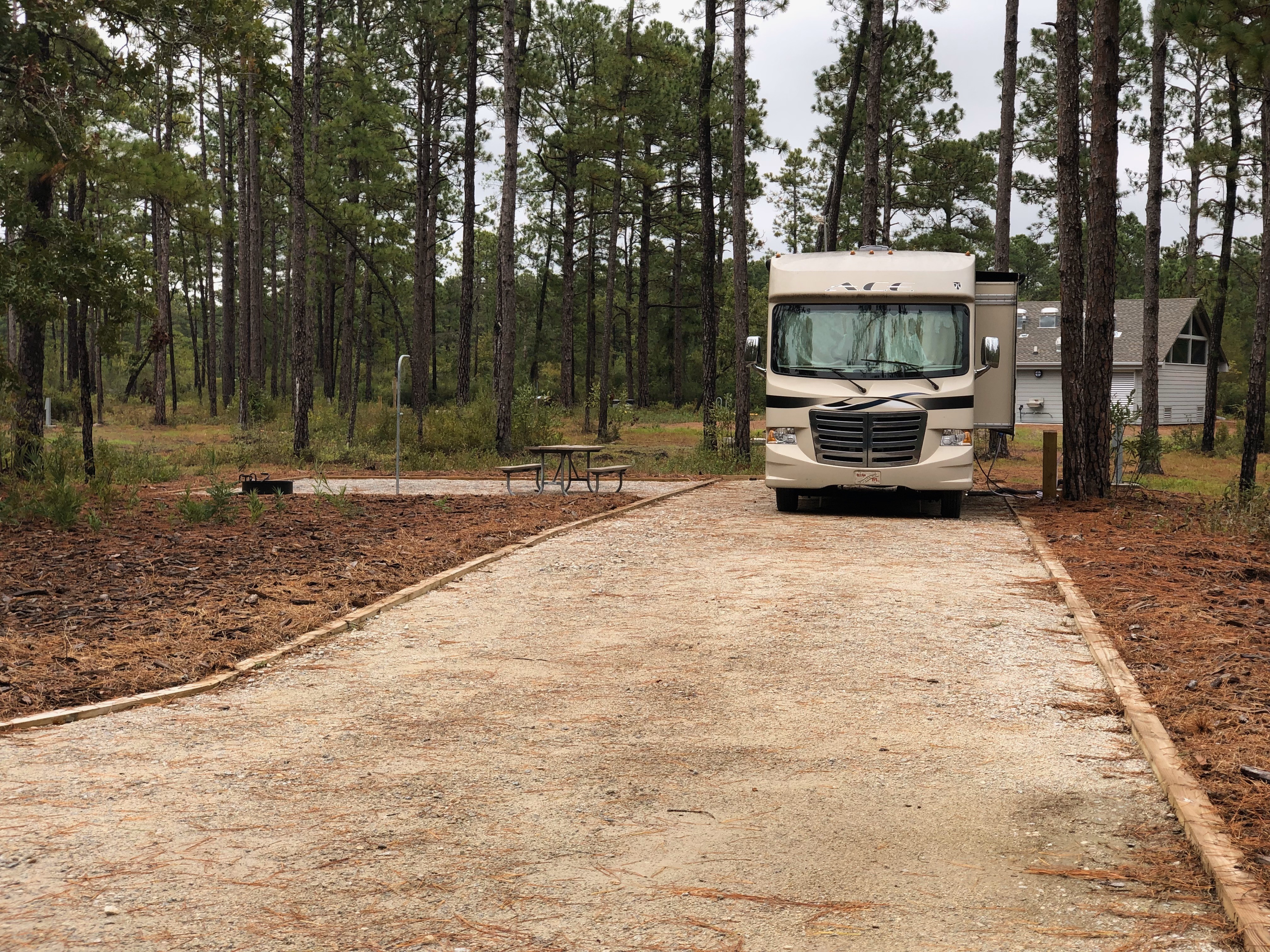
Jones Lake State Park Campground has large, wooded campsites...
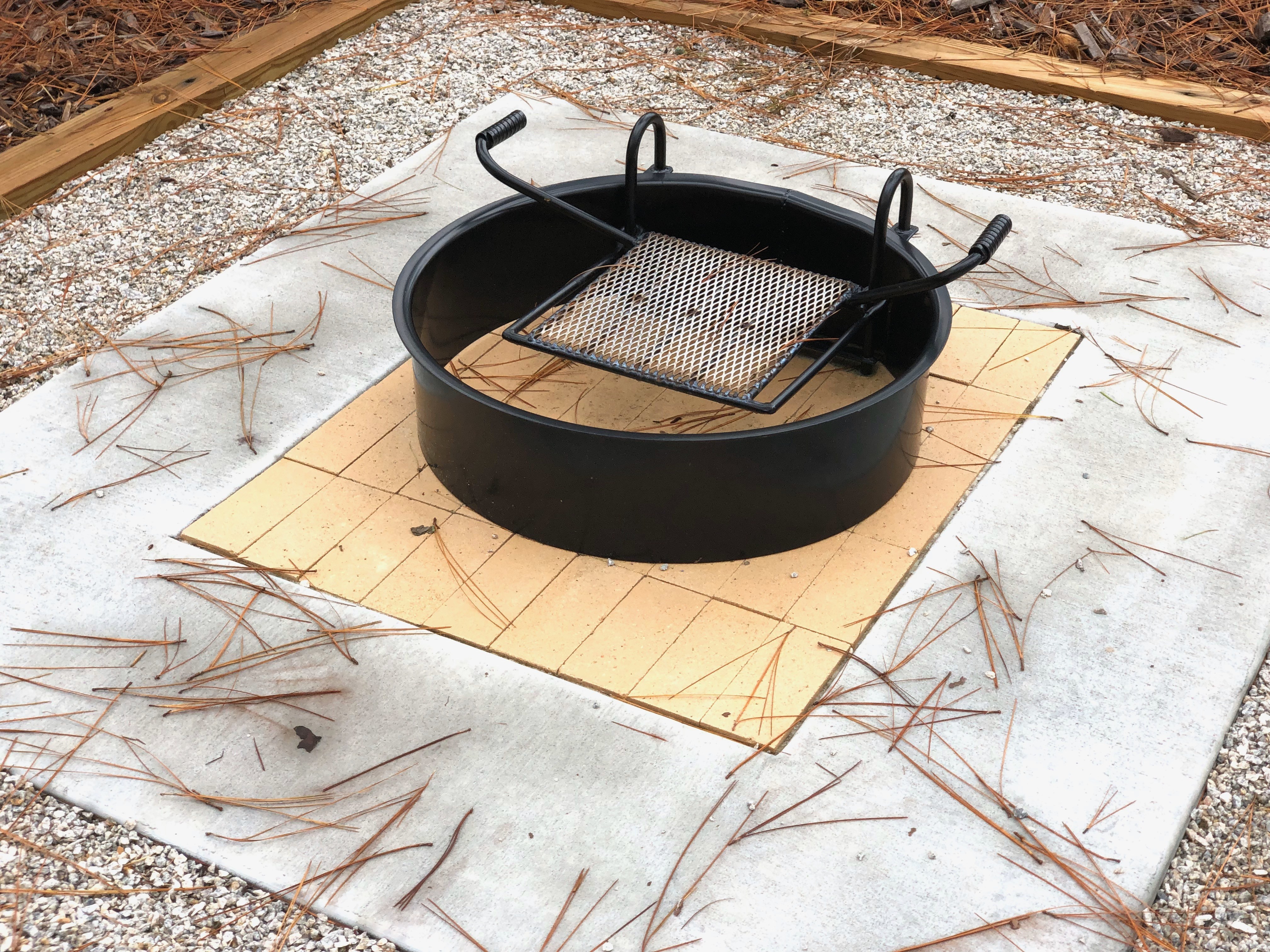
...with really nice fire pits
Carolina Bays and Wetlands: what we learned
Our trip to Jones Lake State Park was a great learning experience for all of us.
Prior to our son's project, I thought wetlands were soggy areas, usually containing protected wildlife and located where a developer wants to build something. I had no idea that there are so many types of wetlands in my home state, not all of them are always wet, and some types of wetlands are not currently protected.
I didn’t even know what a Carolina Bay was, much less that it’s a type of wetland. Here are a few other facts we learned:
- Carolina Bays are elliptical depressions located on the Atlantic Seaboard, from Delaware to Florida, with many found in North Carolina and South Carolina
- Carolina Bays are not named for the body of water (like, for example, the Chesapeake Bay). Instead, they are named for the types of trees that grow in or near them (like Loblolly Bays, Red Bays, an Sweet Bays).
- In addition to the Bay trees, Cypress (both Bald Cypress and Pond Cypress) are common in the Bays
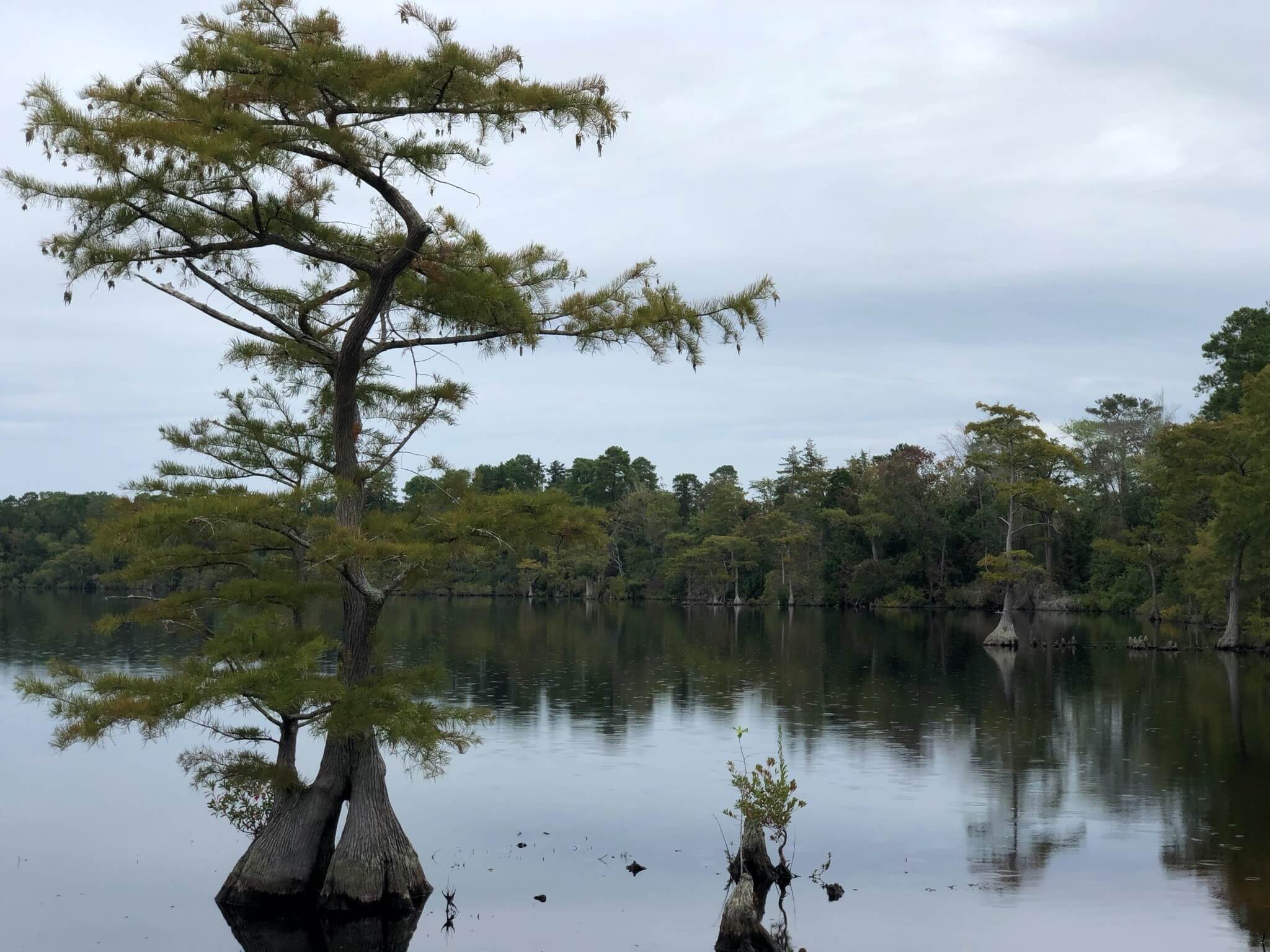
- Carolina Bays are almost always elliptical shaped, and are oriented from Northwest to Southeast. (Why remains a bit of a mystery. The most widely accepted theory is that they were formed by prevailing winds as waters receded. However, this theory is not totally consistent with the makeup of the bays).
- Carolina Bays usually have a sandy rim on the southeast edge. Again, it’s not clear exactly why.
- Carolina Bays are not connected to other bodies of water (and hence may not be protected by the Clean Water Act); instead, their water comes primarily from rainfall. Thus, in long periods of drought, they may not be wet.
- Carolina Bays can vary in size from a few hundred feet to more than 5 miles
- The water in Jones Lake (where we visited) is red or brown. Unlike other local brown bodies of water, the coloration is not due to sediment; instead it is from tannins that leak into the water.
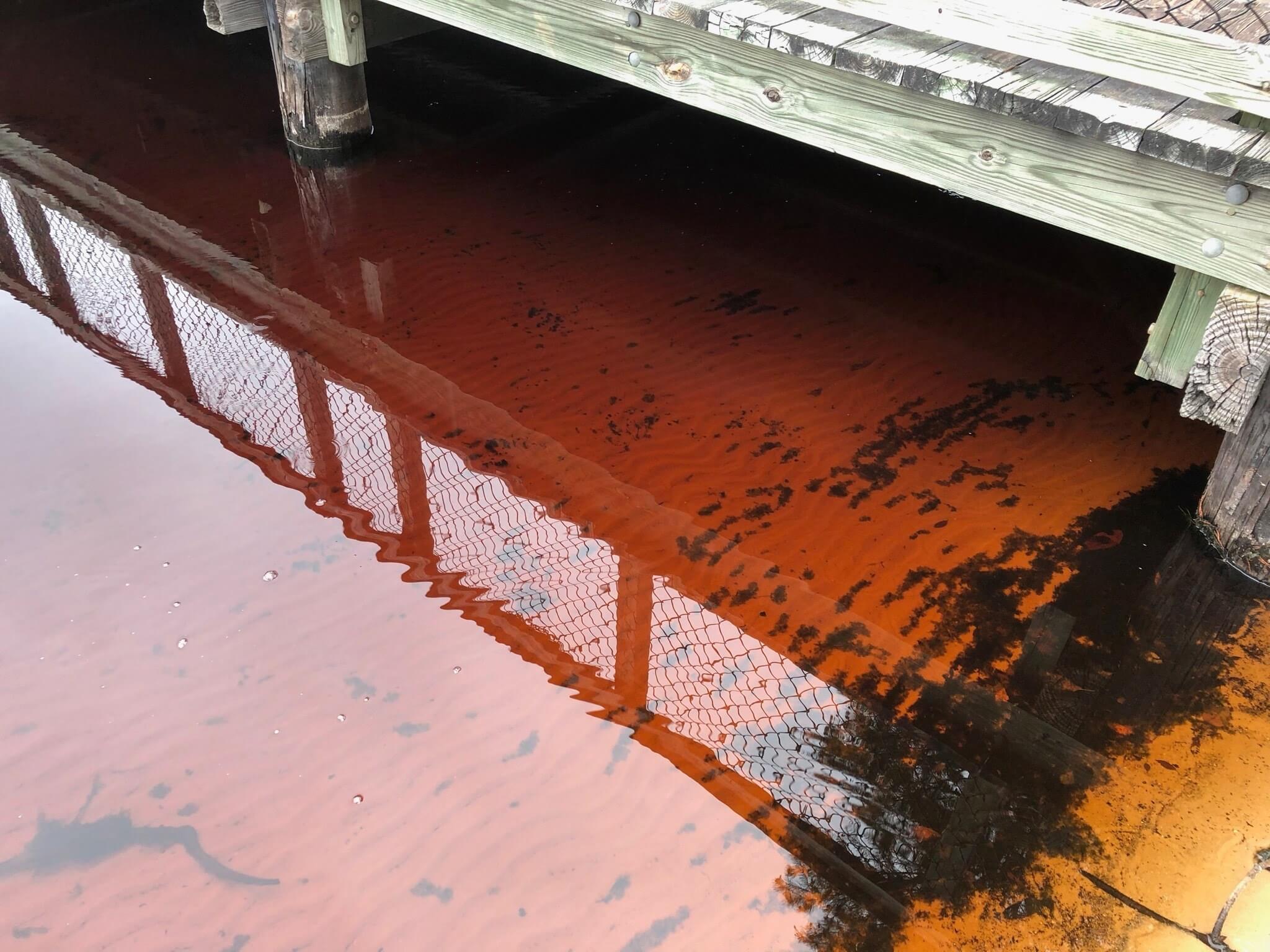
The water in Jones Lake is red due to the tannins that leak into the water.
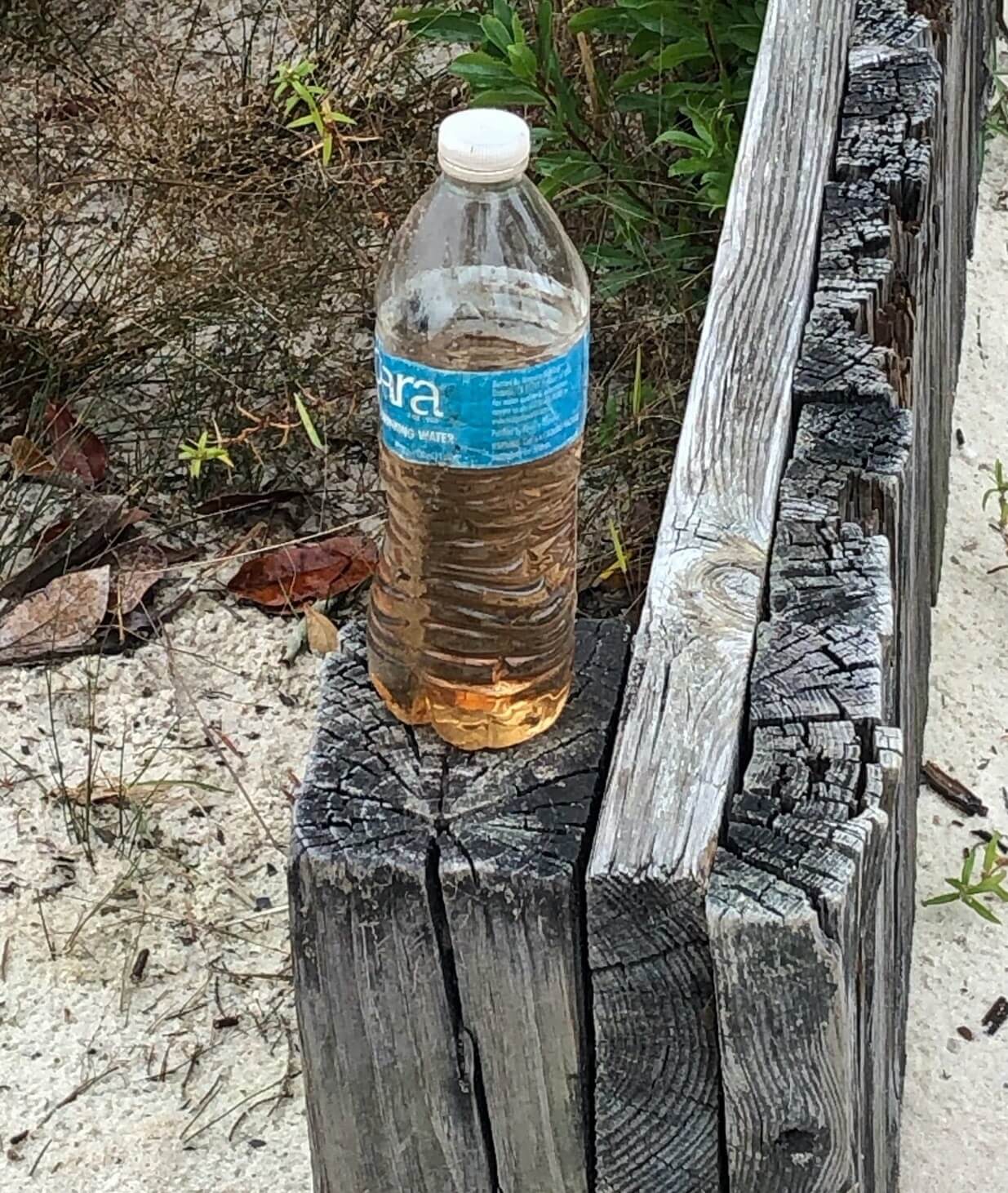
This water bottle with water from the lake shows the coloration
- Left alone, the bays will eventually fill in, but it will take thousands of years.
- Carolina Bays help with flood control by catching and storing water
- The main types of wildlife habitats in the bays are salamanders and frogs, and for those with lakes, fish.
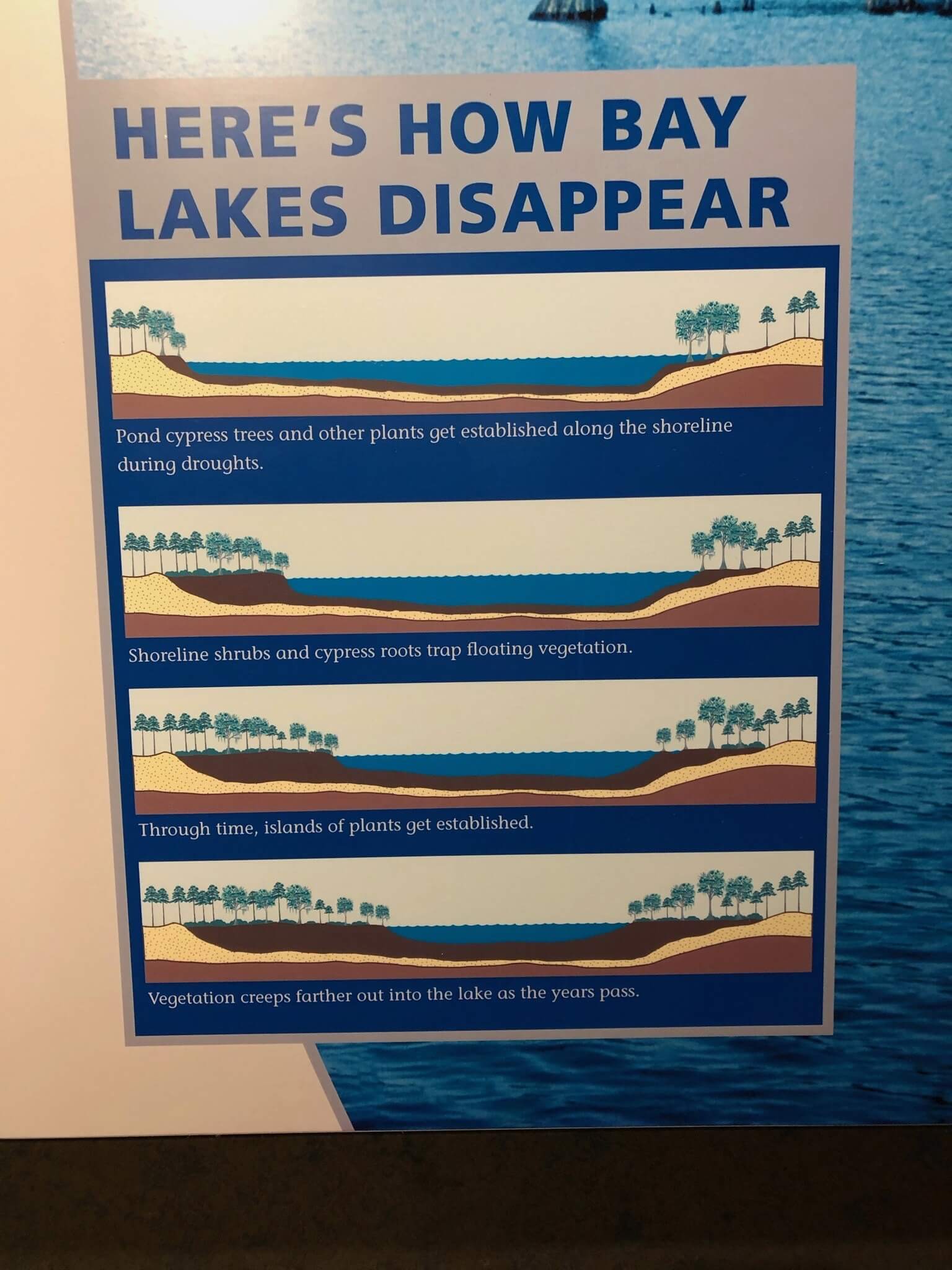
Another exhibit from the Jones Lake State Park Visitor's Center
So now we all know something about the Carolina Bays. Observing the bays first hand really helped my son (and us- his parents!) better visualize and understand these Bays. Instead of the drudgery of reading research material, my son was able to see, experience, and learn about the bays first-hand. We all enjoyed that style of learning!
Using the RV Lifestyle to Enhance Education
Have you ever taken advantage of a part-time RV Lifestyle to enhance your child’s learning? If not, are you considering it? Post your experiences, thoughts, and questions below. Let’s use our RVs to make education more fun!
Start Living Your Dream
You don't have to wait until you retire to start RVing!
My new guide, 7 Ways to Fund Your RV Lifestyle outlines 7 strategies for earning income so that you can afford to RV Full Time!



